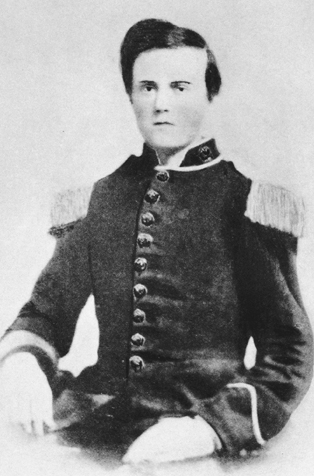The Civil War general who whistled his way into history.

Dan Butterfield was a New York businessman turned Union general. People seemed to love him or hate him. He was awarded the Medal of Honor for rallying his brigade under withering fire, but he had a bad temper that irritated fellow officers. One wrote that he was a man of “blemished character.”
Perhaps so. But he also had poetry in his soul.
One night in July of 1862 he called the brigade bugler to his tent. Butterfield wasn’t happy with the regulation bugle call played at the end of the day to signal “lights out.” It wasn’t sufficiently musical, he said.
The general had something different in mind. Since by his own admission he couldn’t write a note of music, he whistled it for bugler Oliver Norton. When Norton played it back, the result wasn’t quite what Butterfield wanted, and they went back and forth for a while, the general whistling, the bugler blowing, until they had something Butterfield was satisfied with.
Norton used the new call that night. Buglers from other brigades camped nearby were so struck by it that they began using it as well. Soon the call spread throughout the army, and to the Confederate army as well.
And so a collaboration between a general and a bugler on a warm July evening led to twenty-four notes that have gone down in history: a haunting melody known to all that announces the end of day for soldiers and graces the air at military funerals.
Taps.

Butterfield seems to have gotten the idea for the new bugle call from parts of an older call no longer in use, revising it to capture the mood he sought.

Bugler Oliver W. Norton recalled that Butterfield wanted a call that in its music should carry some suggestion of putting out the lights and lying down to rest in the silence of the camp.

Soldiers began making up words to the song as soon as bugler started playing it. These are some of the earliest.